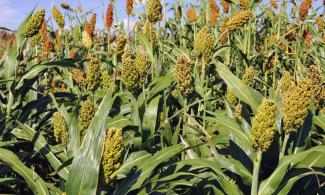
The company said the suspension would allow it to closely monitor market trends and adjust to market realities.
Olam Agri in Nigeria, a provider of differentiated food, feed, and fibre products, has temporarily suspended the procurement of essential grains such as maize and sorghum immediately.
The company said the suspension would allow it to closely monitor market trends and adjust to market realities.
Olam Agri said it “recognises the nation’s significant challenges of food insecurity”.
It said, “As a major buyer and processor of food staples, we share the concerns around the high prices and supply chain disruptions affecting the availability of essential grains.
“In response to these challenges, we are actively collaborating with industry peers and government authorities to identify and implement strategic solutions to alleviate any additional stress on food availability.
“As part of our proactive approach, Olam Agri in Nigeria has decided to temporarily suspend the procurement of essential grains such as maize and sorghum immediately which will allow us to closely monitor market trends and adjust to market realities.
“This decision follows wide consultations with relevant authorities and is part of our commitment to manage the ongoing crisis.
“During this period, our commitment to contribute to local food production capacities remains unwavering as we will ensure uninterrupted distribution of food supplies to the public.
“Our longstanding practice of sourcing essential grains from local Nigerian farmers has supported thousands of livelihoods and met the country’s demand for critical nutrients in daily diets.
“We are steadfast in our commitment to driving sustainable socio-economic development and food security in Nigeria. We are committed and will continue to work closely with authorities to contribute to stabilising the current market challenges.”